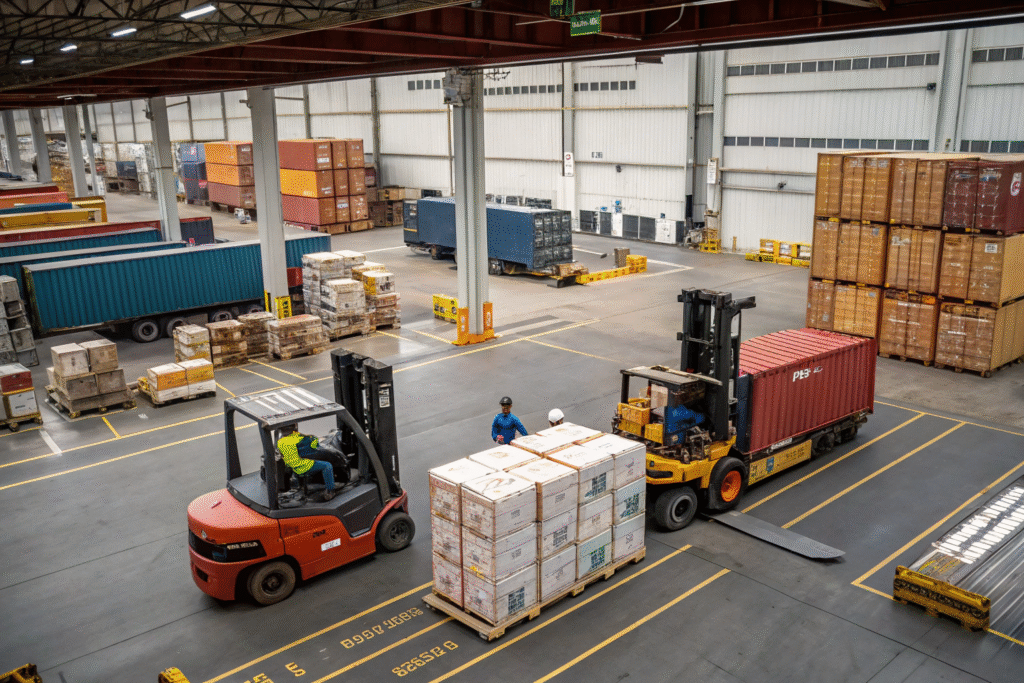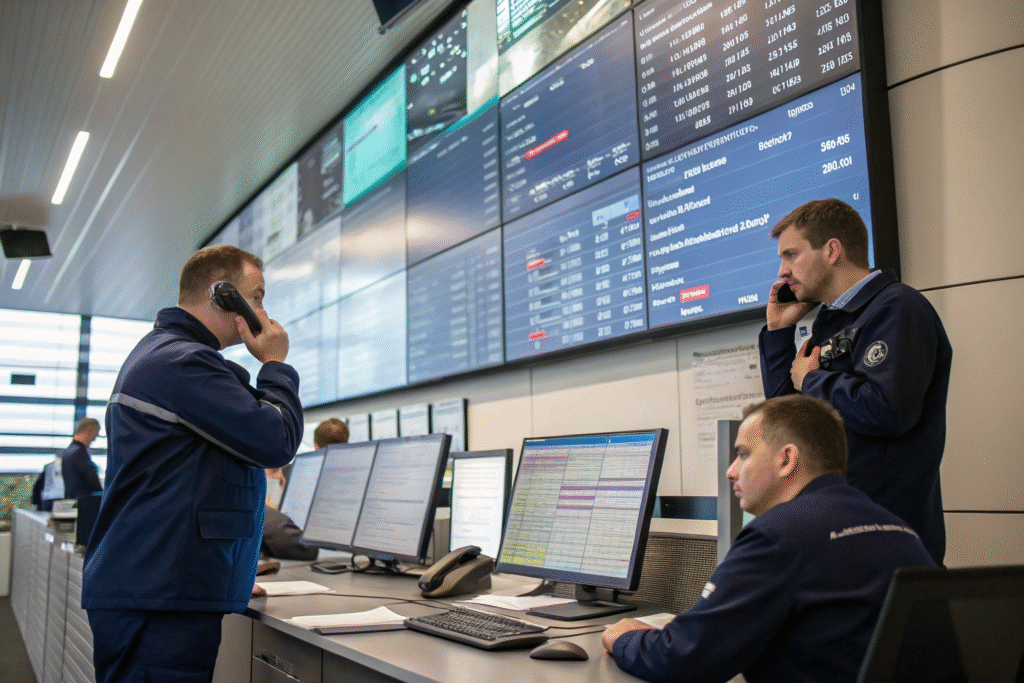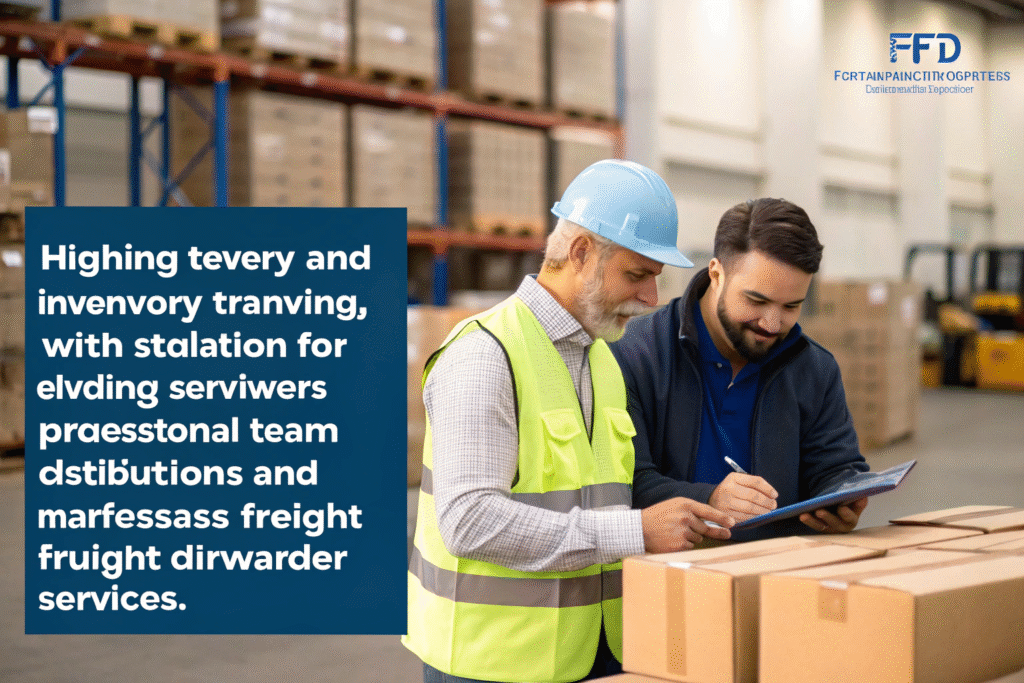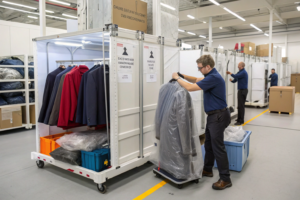GeeseCargo understands how overwhelming international logistics can be—especially when it comes to managing multiple shipments, modes of transport, and customs regulations. If you’ve ever faced delays at the port, miscommunication between carriers, or unexpected tariffs, you’re not alone. We’ve helped countless brands like yours overcome these problems with one decision: choosing a freight forwarder.
Freight forwarders act as the control tower for your global shipments. They manage the paperwork, arrange the most efficient routes, and coordinate with all parties involved. This is especially critical for complex logistics scenarios, such as intermodal transport or time-sensitive delivery to multiple destinations.
Choosing the right partner can drastically reduce risk and improve your supply chain. In this article, I’ll show you how freight forwarders like GeeseCargo help streamline complex logistics, reduce costs, and deliver reliability for businesses like yours.
What Services Do Freight Forwarders Provide?
Freight forwarding is more than just booking cargo space. It involves a range of integrated services designed to move your goods across borders efficiently.
Freight forwarders offer multimodal coordination, document preparation, and customs brokerage, making them an essential link in global trade.

How Do Freight Forwarders Handle Multimodal Transport?
Freight forwarders coordinate across multiple transport modes—ocean, air, rail, and road—ensuring smooth transitions and minimal delay. For example, a shipment might leave your factory in Shenzhen by truck, transfer to sea freight bound for Los Angeles, and finish the last mile via rail.
With GeeseCargo, we use intermodal planning tools and real-time tracking to anticipate and solve issues before they escalate. You don’t have to manage these transitions yourself. Instead, we oversee them end-to-end, adjusting routes based on updated sailing schedules and weather disruptions.
You can learn more about intermodal transport coordination and why it's key for international trade efficiency.
What Documents Do Freight Forwarders Manage?
Freight forwarders prepare commercial invoices, bills of lading, export declarations, and certificates of origin. These are essential for customs clearance and regulatory compliance. Mistakes in documentation are a leading cause of customs delays.
At GeeseCargo, our team ensures every document is aligned with the destination country’s latest regulations. For shipments to the U.S., we manage ISF filing, HTS code classification, and FDA pre-approvals when necessary.
Find examples of critical export documents and a customs clearance checklist used by importers.
Why Is Risk Management Easier With Freight Forwarders?
When logistics grow complex, risk grows too. Delays, lost cargo, and unexpected costs can derail even the best supply plans.
Freight forwarders mitigate risk by offering expert planning, cargo insurance, and contingency strategies.

How Do Freight Forwarders Mitigate Customs Delays?
GeeseCargo builds relationships with customs agents across Asia, Europe, and the U.S. That allows us to resolve delays faster than most. We also pre-screen documentation and offer advance cargo screening for U.S.-bound shipments.
Our digital clearance process flags risky shipments early. That’s particularly important for complex logistics like split shipments, where goods arrive at different times and require staged clearance.
You can also explore more on customs risk strategies.
What Role Does Insurance Play in Risk Reduction?
Shipping goods over long distances without cargo insurance is a major gamble. Freight forwarders help businesses choose the right type of coverage—from basic liability to all-risk insurance—based on the cargo type and route.
At GeeseCargo, we work with top insurers and offer in-transit visibility through IoT tracking. In case of damage or loss, our team facilitates claims directly with the insurer.
Understand more about cargo insurance types and best practices for claim management.
How Can Freight Forwarders Improve Delivery Timeliness?
Every hour counts when you’re shipping high-value goods on a tight deadline. Freight forwarders use experience and tools to optimize timing.
Freight forwarders analyze real-time data, port congestion, and weather patterns to select the fastest and most reliable transport options.

How Do They Choose the Fastest Shipping Routes?
Route optimization starts with understanding the customer’s deadline and matching it to the best available transport. We often compare multiple carriers, review transshipment times, and assess port congestion indexes.
For instance, during peak season congestion at the Port of Long Beach, we might reroute through Oakland or even East Coast ports, depending on speed and cost. Flexibility is key.
There are also tools like Sea-Intelligence's global reliability index that we consult to inform route decisions.
Can They Handle Tight Delivery Windows?
Yes. At GeeseCargo, we specialize in urgent deliveries for fashion retailers and seasonal goods importers. We coordinate with your supplier, confirm production timelines, and line up express customs clearance with DDP services.
We also help clients build buffer time into their schedules, offering predictive ETA models using platforms like FourKites and project44.
What Makes Freight Forwarders Ideal for Scaling Businesses?
As your business grows, logistics complexity increases. Freight forwarders help you scale without overwhelming your internal team.
Freight forwarders offer scalable solutions, from flexible shipment volumes to warehousing and distribution partnerships.

Do Freight Forwarders Support Warehousing and Distribution?
Yes. We often partner with warehouse providers in both origin and destination countries. For U.S.-bound shipments, we can deliver to Amazon FBA warehouses, 3PL centers, or directly to your retail store.
Our team helps you choose between consolidation services, cross-docking, or drop shipping models. You can read about Amazon FBA freight forwarding and 3PL integration strategies.
How Do Freight Forwarders Help With Volume Growth?
As volumes increase, so do risks of shipment delays, inventory bottlenecks, and rising freight costs. We negotiate volume-based rates with carriers, offer weekly sailing schedules, and help plan around peak season.
Whether you’re moving one container per month or dozens per week, GeeseCargo provides shipment forecasting tools and supplier communication frameworks to ensure scalability.
Dive deeper into volume freight savings and peak season preparation.
Conclusion
Freight forwarders are more than service providers—they’re strategic partners for businesses shipping internationally. From document handling and risk reduction to route optimization and scalability, they solve real challenges that can’t be handled alone. At GeeseCargo, we pride ourselves on being a trusted name in freight forwarding. We’ve supported hundreds of companies like Ron’s to move goods faster, safer, and with greater control. If your logistics are getting too complex, don’t go it alone—partner with professionals who understand the terrain.









